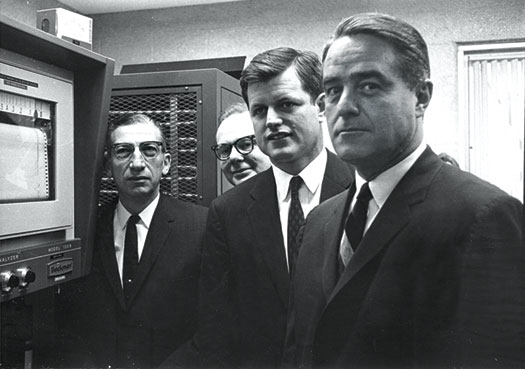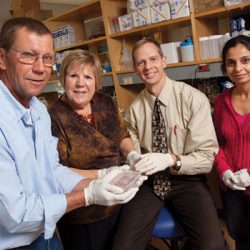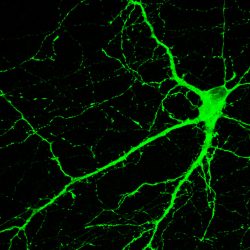Waisman’s Legacy

Prestigious gathering: Harry Waisman (at left), with Wisconsin Governor John Reynolds, Senator Edward M. Kennedy, and his brother-in-law R. Sargent Shriver at the opening of the Joseph P. Kennedy, Jr. Laboratories at the UW in 1963.
To many families, it is known simply as Waisman.
For forty years, the Waisman Center has served as home to scientists who study every stage of human development. And for families in Madison and beyond, the center’s staff members are invaluable partners on the journey of raising children with disabilities.
But Waisman’s legacy started a decade earlier — and with a different name: Kennedy.
In 1963, UW–Madison opened the Joseph P. Kennedy, Jr. Laboratories with help from a grant from the Kennedy Foundation. Senator Edward M. Kennedy and his brother-in-law R. Sargent Shriver, director of the Peace Corps, attended the facility’s dedication. And two days before he was assassinated, President John F. Kennedy sent a telegram congratulating researcher Harry Waisman and his colleagues on their work.
During Kennedy’s term, Congress established the National Institute of Child Health and Human Development within the National Institutes of Health (NIH). One of its core missions is ensuring “that all children have the chance to fulfill their potential to live healthy and productive lives.”
In 1965, with Waisman’s urging, the new NIH institute chose the UW as one of two initial sites in the United States for a multidisciplinary center to study human development and what was then called mental retardation. The federal institute was later named for Eunice Kennedy Shriver, who pushed her brother to include the proposal for the NIH institute in his first health message to Congress. Their sister Rosemary had developmental disabilities, and Kennedy Shriver would later found the Special Olympics.
Waisman (pronounced “Wace-man,” like “grace” or “face”) died in 1971, before the UW center that bears his name opened two years later on the far west end of the UW–Madison campus. But in writing about the center’s work on autism spectrum disorder for this issue of On Wisconsin, I found that the passion he and the Kennedy family had for improving the lives of people with developmental disorders lives on.
Today the Waisman Center is considered one of the world’s leading centers of research, education, and outreach on developmental disabilities and neurodegenerative diseases. It has provided clinical services and other support to more than ten thousand people of all ages. And it has shared its knowledge with the world through research and discovery, and by training more than ten thousand undergraduate and graduate students.
Published in the Spring 2014 issue



Comments
No comments posted yet.